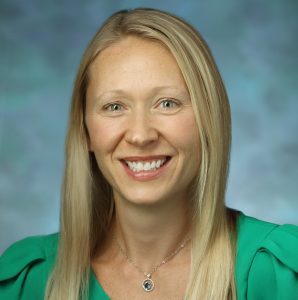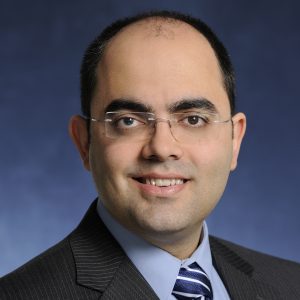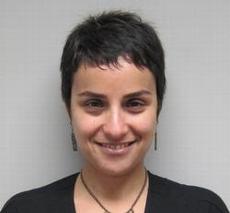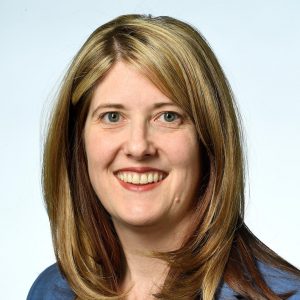
The ACG® System has been used in commercial and research settings worldwide, longer and more extensively than any other system on the market today. The software component is tried and true, continuously undergoing improvements and modifications in response to user needs.
The ACG System continues to evolve through research and development conducted at the Johns Hopkins Bloomberg School of Public Health, a world renowned institution. Over the past 30 years, the ACG System has been maintained and supported by dedicated Johns Hopkins faculty and staff in medicine, biostatistics and health economics. Johns Hopkins University also offers support services by academic professionals to ensure appropriate implementation of the ACG System as well as accurate interpretation of the results.
Users of the ACG System have access to a community of interest and access to case studies from around the world. The ACG System Bibliography contains close to 1,000 published articles and reports from around the globe demonstrating its robustness in varying health care system contexts.
We support users of the ACG System to ensure they are able to maximize the potential of the System. We also work closely with users to ensure they can accurately interpret the outputs of the System and align the data with their business and clinical objectives.
In addition to the staff at Johns Hopkins University who support our R&D work, there is a team of population health experts, data scientists and others who contribute to the development of the ACG System and support users from across the globe.
The Johns Hopkins ACG® System was developed and continues to be validated and improved by experts at the Johns Hopkins Bloomberg School of Public Health (Center for Population Health IT). The diverse ACG System team is comprised of Johns Hopkins faculty and staff including clinicians, health services researchers and Health Information Technology experts. Johns Hopkins HealthCare Solutions is comprised of experts in population health as well as business, marketing and product development. Together, we develop, maintain and offer the ACG System to commercial health plans, governments, health systems, large employers and researchers worldwide.
 Johns Hopkins University Distinguished Professor Barbara Starfield, M.D., M.P.H., was recognized world-wide as an expert in primary care, casemix methodologies and promotion of equity in health. One of her profound insights was that systems of care organized around individual diseases were not optimally beneficial to patients, especially those who are chronically ill. Her defining work with patterns of morbidity forms the basis of the ACG System, which she co-developed.
Johns Hopkins University Distinguished Professor Barbara Starfield, M.D., M.P.H., was recognized world-wide as an expert in primary care, casemix methodologies and promotion of equity in health. One of her profound insights was that systems of care organized around individual diseases were not optimally beneficial to patients, especially those who are chronically ill. Her defining work with patterns of morbidity forms the basis of the ACG System, which she co-developed.
Research by Prof. Starfield and her colleagues in the early 1980s showed that children using the most health care resources were not those affected by single chronic illnesses, but rather they had multiple, seemingly unrelated conditions. Prof. Starfield was able to extend these findings to all ages of patients and ultimately demonstrate that the clustering of morbidity is a better predictor of health services resource use than the presence of specific diseases.
Focusing on the patterns of morbidity forms the basis of the current ACG System and remains the fundamental concept that differentiates the ACG System from other casemix adjustment methodologies.
When Prof. Starfield passed away in 2011, the Johns Hopkins Bloomberg School of Public Health established the Barbara Starfield Scholarship Fund to support doctoral students who pursue study and research that continue Dr. Starfield’s primary areas of focus. In continuing to honor her legacy, the ACG System Team instituted the Starfield Award.
Lizelle Steenkamp and Sharon Naidoo received this award on behalf of Discovery Limited in South Africa in recognition of their use of the Johns Hopkins ACG System in their project entitled “Improving Patient Coordination Through Effective Primary Care Management”. Their work was presented at the 2016 ACG System International Conference in San Diego.
Discovery Limited used the Johns Hopkins ACG System to investigate the impact of care coordination on health care costs and patient health outcomes. By modifying the ACG System coordination risk score to better suit the South African population and patterns of care, Discovery Limited was able to measure the impact of primary care provider allocation. Results demonstrated that assigning a primary care doctor to a patient for care coordination improved care coordination as measured by decreased number of specialist visits and decreased number of hospital admissions and readmissions. Improvements were also seen in process measures recorded within diabetes and healthy heart management.
“We are immensely honored to receive this award in recognition of a project using the ACG System to measure the impact of primary care provider allocation,” said Dr. Jonathan Broomberg, CEO of Discovery Health. “For Discovery it is critical that we continue to maximize value for patients. Projects such as these make excellent use of tools such as the ACG System and support our efforts to move towards a patient-centered health care system, which aims to achieve the best patient outcomes at the lowest possible cost,” Broomberg continued.
Discovery Limited’s study also showed that the specialty of the doctor providing the majority of care is not as important as previously thought. Instead, the strength of the relationship between the patient and the provider has a greater influence on successful care coordination. Patients with strong relationships with their primary care providers had better utilization experiences than those with weak relationships. This is independent of insurance benefit design as patients with strong relationships with general practitioners on both unrestricted and restricted plans experienced lower levels of hospital utilization. They also experienced lower care coordination issues.
“Results from this project demonstrated that coordinated care, by assigning a primary care doctor to a patient, lowered overall health care costs and improved patient outcomes,” confirmed Broomberg. Commenting on their work in coordinated care, he said, “Discovery Health places great emphasis on coordination of patient care and the subsequent evidence of improved care and costs. Measured by a decreased number of specialist visits and hospital admissions and readmissions, this project also showed that our patient-care strategy using the Discovery Health Premier Practice model is effective,” he added.
The findings support the Discovery Premier Practice model that was introduced in 2015 and provides an approach that encourages care coordination within the health care system namely the Discovery Premier Network. This network consists of general practitioners who agree to follow evidence based pathways for the management of patients with the following conditions: diabetes, hypertension, hyperlipidemia or coronary artery disease. Enrolled doctors are incentivized to manage their patients’ care. The Premier Network is unique in that it is coupled with Discovery’s wellness program, Vitality. Vitality members are incentivized to reach particular health goals.
“Given Professor Starfield’s conviction of the importance of coordinated care as well as her input during the creation of the ACG System Coordination Markers, it is truly fitting that the work of this year’s Starfield Award winner focusses on these aspects,” said Karen Kinder PhD, MBA; Executive Director, ACG System
To access a summary presentation highlighting their award-winning work, click here.
The Starfield Award honors the work and legacy of Dr. Barbara Starfield, co-developer of the Johns Hopkins ACG System. We are honored to receive numerous applications from leaders in health care research from across the globe. The award recognizes work focusing on three major aspects of Barbara Starfield’s work; addressing multi-morbidity in patients and populations, reducing disparities in the delivery of primary health care, and improving population health. The ACG System Team is grateful to DST for sponsoring this award. It is awarded biennially and presented at the ACG International User Conference.
Lourens Walters, Cristina Mannie, and Stefan Strydom of Medscheme in South Africa received the 2014 Starfield Award in recognition of their use of the ACG System in their project titled: “A comprehensive care management programme focused on emerging and high risk individuals”.
They presented their work at the 2014 ACG System International Conference in Seattle, WA.
The aim of Medscheme’s research was to identify individuals within lower morbidity groups who were most likely to incur increasing health care costs in the future but are still amenable to care management intervention programs. What differentiated their approach from other methods of identifying patients for care management programs was their recognition that when tracking costs over future time periods for individuals in the lower Resource Utilization Bands (RUBs), the average health care expenditure for these individuals increases dramatically even though their current costs are relatively lower than those associated with higher RUBs.
A predictive model utilizing the ACG System was developed to predict the likelihood of moving to a higher RUB in the future. This new Emerging Risk Model complements their existing care management approach of focusing on high risk individuals.
By intervening on high risk individuals identified by applying their existing High Risk Predictive Model which also utilizes the ACG System, their randomized controlled study observed financial savings and a reduction in utilization of hospital services. Individuals identified by the Emerging Risk Model are likely to benefit from similar interventions due to a similar disease profile. A randomized controlled study is planned to measure intervention outcomes.
The Starfield Award honors the work and legacy of Dr. Barbara Starfield, co-developer of the Johns Hopkins ACG System. This year we were honored to receive numerous applications from leaders in health care research from across the globe. The award recognizes work focusing on three major aspects of Barbara Starfield’s work; addressing multi-morbidity in patients and populations, reducing disparities in the delivery of primary health care, and improving population health. The ACG System Team is grateful to DST for sponsoring this award. It is awarded biennially and presented at the ACG International User Conference.
Johns Hopkins University Distinguished Professor Barbara Starfield, M.D., M.P.H., was recognized world-wide as an expert in primary care, case mix methodologies, and promotion of equity in health. Her defining work with patterns of morbidity forms the basis of the ACG System, which she co-developed.
When Prof. Starfield passed away in 2011, the Johns Hopkins Bloomberg School of Public Health established the Barbara Starfield Scholarship Fund to support doctoral students who pursue study and research that continue Dr. Starfield’s primary areas of focus. In continuing to honor her legacy, the ACG System Team instituted The Starfield Award.
Download the Application for the Starfield Award.
Learn about sponsoring the Starfield Award.
Read more about Dr. Starfield’s life and career.
View Dr. Starfield’s Wikipedia page.
Dr. Starfield and her contributions continue to be discussed by public health professionals around the globe. As a sponsor, you keep her body of work vibrant –and help the next generation of students to make exciting advances.
Any individual or organization who wishes to honor Prof. Starfield’s work through sponsorship of the Starfield Award and the Barbara Starfield Scholarship Fund will be recognized in a variety of ways. These include highlighted mention in collateral materials, on websites, and in media. Additionally, priority preference for conferences will be offered.
For further Information on the Starfield Award and Sponsorship: please e-mail the ACG System Team at: info@HopkinsACG.org.
 Dr. Sutch holds an associate faculty position at the Johns Hopkins School of Public Health and is an associate professor of population health data analytics at Leiden University Medical Center, The Netherlands. Dr. Sutch has worked with the ACG System team since 2007 and has a special interest in patient classification and population health analytics.
Dr. Sutch holds an associate faculty position at the Johns Hopkins School of Public Health and is an associate professor of population health data analytics at Leiden University Medical Center, The Netherlands. Dr. Sutch has worked with the ACG System team since 2007 and has a special interest in patient classification and population health analytics.
Dr. Sutch has over 20 years’ experience working in the National Health Service (NHS) in Great Britain at local, regional and national levels. He has worked with data and data collections from various aspects of activity and financial returns and has designed tools that led to the development of analytical methods on routinely collected NHS data as well as other clinical data collections.
Dr. Sutch specializes in population health and primary care applications of predictive models, with research interests in care management in primary care and the measurement of multimorbidity. Working with the ACG System team, Dr. Sutch has contributed to projects in a number of countries utilizing existing primary and secondary care data to create population-based analyses, developing his expertise in mapping differing classification systems.
 As Vice President of Health Care Innovation and Management Solutions, Craig is responsible for leading a business unit that brings together Johns Hopkins HealthCare Solutions and Venture businesses to form a single platform that partners with Johns Hopkins faculty to advance applied solutions to meet health care challenges in the marketplace.
As Vice President of Health Care Innovation and Management Solutions, Craig is responsible for leading a business unit that brings together Johns Hopkins HealthCare Solutions and Venture businesses to form a single platform that partners with Johns Hopkins faculty to advance applied solutions to meet health care challenges in the marketplace.
As Special Advisor to the President of Johns Hopkins University, Dr. Williams supports the University’s role in the economic transformation of Baltimore and Maryland.
Prior to joining Johns Hopkins in 2016, Dr. Williams served two Governors of Maryland and a U.S. Representative. His roles included responsibility for state and federal health care policy innovation, administration, and financing. Dr. Williams also worked for Amgen, Inc., serving for eight years as Director of Policy.
Dr. Williams earned his Bachelor of Arts (English & Political Science) from Bethany College, WV. He earned his Master of Arts and Ph.D. from the University of Oklahoma (Political Science).
 Kumar Subramaniam is the associate vice president of the Johns Hopkins HealthCare Innovation business unit. In this role, he both leads the Solutions team and supports the development of the business unit’s Ventures portfolio. He also is an associate faculty member in the Department of Health Policy & Management at the Johns Hopkins Bloomberg School of Public Health.
Kumar Subramaniam is the associate vice president of the Johns Hopkins HealthCare Innovation business unit. In this role, he both leads the Solutions team and supports the development of the business unit’s Ventures portfolio. He also is an associate faculty member in the Department of Health Policy & Management at the Johns Hopkins Bloomberg School of Public Health.
Kumar joined the Solutions team in November 2017 to lead the ACG® System and Population Health Analytics teams, having spent more than 20 years in leadership roles in various health care organizations—including Humana, hCentive, Care Innovations, and ShareCare Healthways—building a strong track record as an innovator in the development and commercialization of health care information technologies.
Kumar earned a doctorate degree in business administration at the Walden University School of Technology and Business. He also holds an MBA in entrepreneurship from the University of Louisville, a Bachelor of Engineering degree from Pune University and has cleared all three levels of the Institute of Chartered Financial Analyst exams.
 Dr. Lemke is a senior member of the ACG System R&D team at the Center for Population Health IT (CPHIT) in the Department of Health Policy and Management at the Johns Hopkins Bloomberg School of Public Health. He actively contributes to the process of moving new tools for health care administration from software specification to testing and validation. He has also been a frequent presenter at ACG User conferences and has co-authored multiple academic papers that have featured ACG System components.
Dr. Lemke is a senior member of the ACG System R&D team at the Center for Population Health IT (CPHIT) in the Department of Health Policy and Management at the Johns Hopkins Bloomberg School of Public Health. He actively contributes to the process of moving new tools for health care administration from software specification to testing and validation. He has also been a frequent presenter at ACG User conferences and has co-authored multiple academic papers that have featured ACG System components.
Dr. Lemke joined Johns Hopkins University in 1998. His prior work experience was as a statistician with the Maryland Department of Health and Mental Hygiene and the Maryland Healthcare Commission. He has vast experience in claims processing, risk adjustment, predictive modeling, biostatistics, epidemiology and statistical programming and data visualization. He successfully applied the ACG System in pilot projects to National Health Insurance schemes in the United Kingdom and Germany, which has contributed to the adoption of the ACG System in several European countries. He has also participated in the development of key functionality into the ACG System, including the Expanded Diagnosis Clusters, and developed hospitalization and readmission prediction models, condition indicators based on laboratory results, and an emergency department visit classification algorithm. He continues to work on multiple ACG System projects with electronic medical records and claims.
Dr. Lemke received his Doctor of Philosophy degree in Statistics and Industrial Engineering from Iowa State University after he completed a master’s program in Statistics at the University of Georgia.
 Dr. Weiner is a professor of health policy and management at the Johns Hopkins Bloomberg School of Public Health. He is also a professor of health sciences informatics at the Johns Hopkins School of Medicine, and currently co-director of the Johns Hopkins Center for Population Health IT (CPHIT). He is the director of the Public Health Informatics training program at Johns Hopkins. His current research focuses on the integration and application of Big Data from the medical, insurance, public health and social service sectors to population-based analytics and interventions within communities and delivery systems.
Dr. Weiner is a professor of health policy and management at the Johns Hopkins Bloomberg School of Public Health. He is also a professor of health sciences informatics at the Johns Hopkins School of Medicine, and currently co-director of the Johns Hopkins Center for Population Health IT (CPHIT). He is the director of the Public Health Informatics training program at Johns Hopkins. His current research focuses on the integration and application of Big Data from the medical, insurance, public health and social service sectors to population-based analytics and interventions within communities and delivery systems.
During his more than 35 years with Johns Hopkins, Dr. Weiner served as the director of the health services research and policy PhD program and as the deputy director of the Health Services Research and Development Center. He is the founder of the Johns Hopkins Center for Population Health IT, an innovative cross-disciplinary center focusing on the application of EHR, e-health and m-health data sources to public health, population health and health care system improvement. Lastly, Dr. Weiner is the co-developer and Scientific Director of the Johns Hopkins ACG System.
Dr. Weiner received a bachelor’s degree in Human Biology from the University of Pennsylvania. He received a master’s degree in Health Administration from the University of Massachusetts-Amherst, and a Doctorate of Public Health in Health Services Research and Policy from Johns Hopkins.
 Melissa White Davis has more than 20 years of marketing, business development and strategic partnership experience. Her expertise includes building quantifiable marketing strategies, brand management, product marketing and navigating the evolving digital health and wellness industry. As the director of product marketing & business development for the population health analytics team, Ms. Davis is dedicated to advancing our mission to showcase the Johns Hopkins’ population health analytics capabilities to ultimately improve the health outcomes of patients and populations through the use of an analytics-driven interventions. In addition to driving the Johns Hopkins ACG System’s product marketing strategy, Ms. Davis also provides leadership and direction to the team’s market intelligence and business development activities.
Melissa White Davis has more than 20 years of marketing, business development and strategic partnership experience. Her expertise includes building quantifiable marketing strategies, brand management, product marketing and navigating the evolving digital health and wellness industry. As the director of product marketing & business development for the population health analytics team, Ms. Davis is dedicated to advancing our mission to showcase the Johns Hopkins’ population health analytics capabilities to ultimately improve the health outcomes of patients and populations through the use of an analytics-driven interventions. In addition to driving the Johns Hopkins ACG System’s product marketing strategy, Ms. Davis also provides leadership and direction to the team’s market intelligence and business development activities.
 Dr. Kharrazi is an Associate Professor of health policy and management at the Johns Hopkins School of Public Health (JHSPH), with a joint appointment in health informatics at the Johns Hopkins School of Medicine (JHSOM). He is the co-director of the JHSPH Center for Population Health IT (CPHIT) and is a core member of the Johns Hopkins ACG system’s R&D team. He is also the director of the DrPH Informatics track at JHSPH and the director of Health Informatics PhD and MSc programs at JHSOM.
Dr. Kharrazi is an Associate Professor of health policy and management at the Johns Hopkins School of Public Health (JHSPH), with a joint appointment in health informatics at the Johns Hopkins School of Medicine (JHSOM). He is the co-director of the JHSPH Center for Population Health IT (CPHIT) and is a core member of the Johns Hopkins ACG system’s R&D team. He is also the director of the DrPH Informatics track at JHSPH and the director of Health Informatics PhD and MSc programs at JHSOM.
Dr. Kharrazi has in-depth expertise with health information technology and population health analytics. His expertise includes assessing the needs and impact of health IT on care delivery, designing interoperable platforms for population health, and developing new methods for risk stratification. He has led several projects resulting in population health IT solutions that provide direct population‐based decision support to health care providers, insurers, and public health agencies.
Dr. Kharrazi’s research focuses on the application of informatics in population risk stratification and the effect of data type and quality in predicting utilization. He has published 90+ peer-reviewed journal articles and has been funded by a wide range of federal agencies such as NIH, ONC, AHRQ, FDA, CMS, and VHA. His recent projects include designing interoperable and Big Data platforms for population health analytics and evaluating advanced predictive models for risk stratification using a diverse set of data sources (EHRs, claims, geo-social determinants of health).
Dr. Kharrazi received a medical degree from Tehran/Iran University in Tehran, Iran. He received a master’s degree in Health Informatics from Dalhousie University in Halifax, Canada. He also holds an interdisciplinary PhD in Health Informatics from the same institution.
 Dr. Pandya manages the operationalization of R&D work into the ACG System. As a health services researcher with clinical and informatics experience, Dr. Pandya’s research interests are at the intersection of health policy, clinical informatics, and the outcomes and quality of health care delivery. Broadly, he is interested in understanding the health systems and information technology drivers and determinants of high-quality care, and in particular, care for vulnerable populations, including the elderly and those that are at risk of health disparities.
Dr. Pandya manages the operationalization of R&D work into the ACG System. As a health services researcher with clinical and informatics experience, Dr. Pandya’s research interests are at the intersection of health policy, clinical informatics, and the outcomes and quality of health care delivery. Broadly, he is interested in understanding the health systems and information technology drivers and determinants of high-quality care, and in particular, care for vulnerable populations, including the elderly and those that are at risk of health disparities.
Dr. Pandya joined the ACG Systems Team and Center for Population Health IT (CPHIT) as an Assistant Scientist in 2020. Previously, Dr. Pandya led a clinical analytics team in the Informatics and Analytics Department at Dana-Farber Cancer Institute, providing data analytics insights to various clinical care leaders to support better decision-making and improve quality of cancer care delivery. In addition, he has worked in the role of Senior Medical Informaticist for Wilmot Cancer Center and was Assistant Professor in the Department of Hematology/Oncology and Internal Medicine at University of Rochester Medical Center (URMC), leading their Data Analytics and Informatics program.
Dr. Pandya received a bachelor’s degree in Medicine and Surgery (MBBS) from Gujarat University in India. Following this, he received a master’s degree in Public Health from Stony Brook University and a PhD in Health Services Research and Policy from the University of Rochester, New York.
 Dr. Hatef is an Assistant Scientist at the Center for Population Health IT (CPHIT) in the Department of Health Policy and Management at Johns Hopkins Bloomberg School of Public Health (JHSPH). She also serves as the academic director of the Johns Hopkins General Preventive Medicine Residency Program. As a preventive medicine-public health physician and clinical informatician, Dr. Hatef focuses on population health, social and behavioral determinants of health and health information technology. Her main field of interest is the impact of social and behavioral determinants of health on health-related outcomes using health IT and Big Data. In collaboration with other faculty at CPHIT, she works on new methods of data mining and natural language processing to address social determinants of health (SDOH).
Dr. Hatef is an Assistant Scientist at the Center for Population Health IT (CPHIT) in the Department of Health Policy and Management at Johns Hopkins Bloomberg School of Public Health (JHSPH). She also serves as the academic director of the Johns Hopkins General Preventive Medicine Residency Program. As a preventive medicine-public health physician and clinical informatician, Dr. Hatef focuses on population health, social and behavioral determinants of health and health information technology. Her main field of interest is the impact of social and behavioral determinants of health on health-related outcomes using health IT and Big Data. In collaboration with other faculty at CPHIT, she works on new methods of data mining and natural language processing to address social determinants of health (SDOH).
Among other projects at CPHIT, Dr. Hatef led the development of a population health framework in collaboration with Maryland Health Information Exchange’s Chesapeake Regional Information System for our Patients (CRISP) program, supported by the Maryland State Improvement Model and CMS. She also led a project assessing the impact of population-level SDOH on health care utilization at the Veterans Health Administration.
Dr. Hatef received her medical degree from Tehran University of Medical Sciences, in Tehran, Iran, and a master’s in public health from the JHSPH. Dr. Hatef completed a preliminary year in Internal Medicine at Yale-affiliated Griffin Hospital in Connecticut and the Preventive Medicine Residency at the JHSPH. She then completed the Clinical Informatics Practice Pathway at the same institution. Dr. Hatef is board certified in Preventive Medicine-Public Health and Clinical Informatics.
 Sarah Kachur is part of the population health analytics leadership team at Johns Hopkins HealthCare Solutions. She is responsible for a portfolio of analytic products and engagements providing real world business analysis and actionable expertise within the institution and to Solutions’ external customers. Together with an experienced team of analysts and product managers, she develops data-driven patient and population-level solutions to address the most pressing clinical and financial challenges, leads analytic consulting engagements and plays a key decision-making role in the ACG System product management lifecycle and new product development.
Sarah Kachur is part of the population health analytics leadership team at Johns Hopkins HealthCare Solutions. She is responsible for a portfolio of analytic products and engagements providing real world business analysis and actionable expertise within the institution and to Solutions’ external customers. Together with an experienced team of analysts and product managers, she develops data-driven patient and population-level solutions to address the most pressing clinical and financial challenges, leads analytic consulting engagements and plays a key decision-making role in the ACG System product management lifecycle and new product development.
Sarah’s career experience demonstrates a talent for strategy definition and realization using analytic insights across health plans and health systems. Prior to this role, she led Population Health Analytics for Johns Hopkins HealthCare’s four health plans and system-level population health initiatives, using her expertise in high-risk patient identification, clinical data mining, identification of health improvement opportunities and monitoring and evaluating clinical programs. She is Johns Hopkins’ business lead for the precision medicine inHealth Population Health Center of Excellence, partnering with faculty to use advanced machine learning techniques to quantify changes in individual health and related utilization and expenditures. In addition, Sarah has 10 years of experience in managed care pharmacy, including Part D plan implementations, formulary and adherence program development, and risk prediction using pharmacy data.
Sarah received her M.B.A. from Loyola University Maryland. She holds a doctorate of pharmacy degree with a specialization in pharmacoeconomics and a bachelor’s degree in mathematics from the University of Rhode Island. She is board certified in ambulatory care pharmacy.